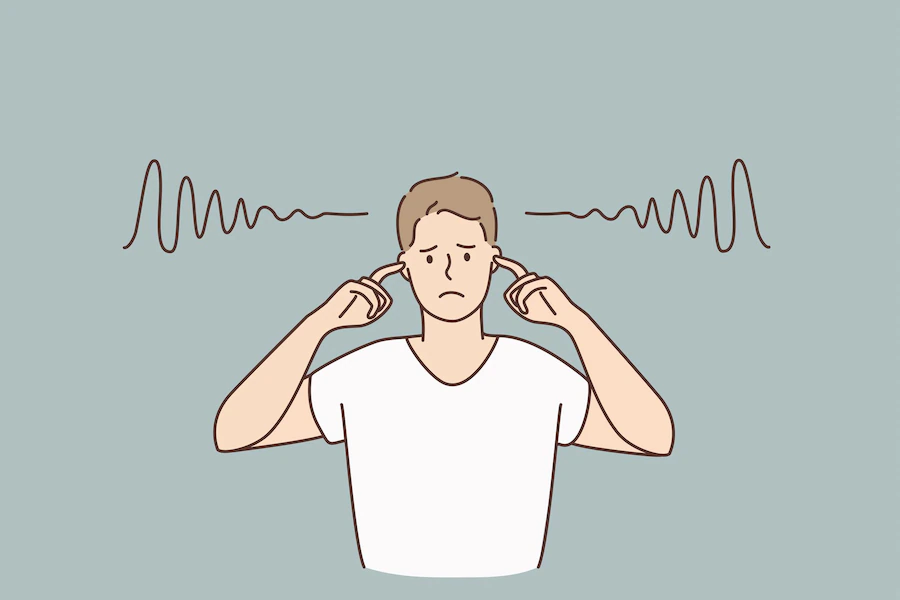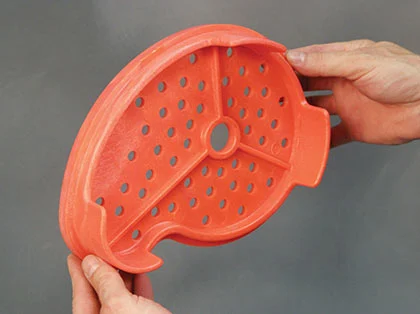Sump pumps are designed to remove water from basements or crawl spaces. They usually consist of a motorized pump attached to a pipe that runs under the floorboards. The pump sucks water out of the basement through a series of pipes and then pushes it into a drainage system.
Sump pumps are often noisy because they run continuously. This noise can cause problems for homeowners who live near them. If you hear a loud sump pump running at night, check whether it has stopped working properly. You should also consider replacing your old sump pump with a quieter model.
How often do you hear stories where people complain about noisy sump pumps? Every homeowner knows that sump pump noise can be annoying at times but how does one know whether his/her sump pump is working properly? In this article we will discuss what might be causing your sump pump to be loud.

Here are some things that could be causing your sump pump to make too much noise:
A clogged discharge line
If your discharge line becomes blocked by debris, your pump will have trouble removing water from your basement. You may need to replace your discharge line if this happens. To prevent future blockages, keep your drainpipe free of lint and other debris. Clean it frequently.
If you have a clogged drainpipe, try using a snake to clear it. You may need to empty your sump pit first if you use a snake to get the clog.
To avoid having to empty your sump, install a garbage disposal in its place. This will cut down on any debris that gets caught in the sink trap.
A foreign object caught in the impeller/A worn impeller
The impeller is part of the pump’s rotating assembly. It helps move water from the suction side of the pump to the discharge side. A worn or damaged impeller could stop the water flow entirely. You’ll have to repair this damage before the pump will work correctly again.
The impeller may need internal cleaning or the impeller could simply be jammed.. Check for damaged or broken impeller blades. Add a filter or change a clogged filter if needed. This can help avoid future jams and make your pump reliable once again.
One way to fix an impeller problem is to change it. Your local hardware store probably carries impeller replacement parts. However, you may want to call your manufacturer or hire a professional plumber to do it instead. An expert can quickly and easily swap the impeller without damaging the rest of the pump.
Corrosion on the motor’s stator
Another reason that your pump might not be working as intended is corrosion on the stator (the stationary component). Corroded stators can affect the efficiency of the pump and create excessive noise. If you suspect that this is what’s happening, you’ll need to take apart your pump to inspect it thoroughly.
In most cases, you’ll find that a small amount of rust is present on the stator. You can clean these deposits off using wire brushes, sandpaper, emery cloth, or steel wool. Once cleaned, apply a few coats of anti-corrosive paint or sealer. Check your manufacturer’s instructions for more information about how to take care of a corroded stator.
Dirt buildup inside the housing
Your pump may not be functioning properly if dirt builds up inside its housing. Dirt causes friction between moving components like bearings and gears. Friction creates heat and wear and tear on those components. Eventually, this wears out the entire pump.
This problem isn’t likely to happen unless your foundation contains lots of clay soil. Clay soil tends to stick to anything solid that comes into contact with it. If you notice excess amounts of mud in your sump pit, you’ll have to dig the sediment out. The easiest way to do this is by hand. Be careful when digging since the mud can contain large rocks. Wear heavy gloves, and don’t attempt this task while wet.
Electrical problem or corroded components
A faulty electrical system could cause your sump pump to malfunction. For example, a defective circuit breaker could shut off power to your pump during a storm or other emergency.
In addition to an electrical problem, corrosion on the pump’s internal parts could slow down their movement. As a result, the pump won’t operate efficiently. To prevent this situation, regularly check your pump’s impeller and stator for signs of corrosion. Clean them with wire brushes, sandpaper or emery cloth, then coat them with an anti-corrosive coating such as zinc.
Overloaded wiring
If your house has multiple circuits coming out of one panel box, some of these circuits are likely to overload. This overload could cause enough current to short out internally within your line transformer. When this happens, the pump’s controls may malfunction or even fail completely.
To avoid this problem, make sure that all appliances plugged into any given outlet share a common ground wire. Grounding each appliance individually would require running dedicated wires from the main panel to every appliance. A better option is to use a subpanel to isolate the pump’s circuits from other loads.
To conclude,
While there are many possible reasons why your sump pump makes noise, the possibilities presented above should solve your problem right away. If cleaning the pump doesn’t work, it’s time to call a professional. They will be able to pinpoint the exact source of the noise so they can repair it effectively.
Sump pumps aren’t magical devices that just start working overnight. It takes considerable effort and money to keep them clean and functional. It pays to invest in quality equipment because you want the best performance.



